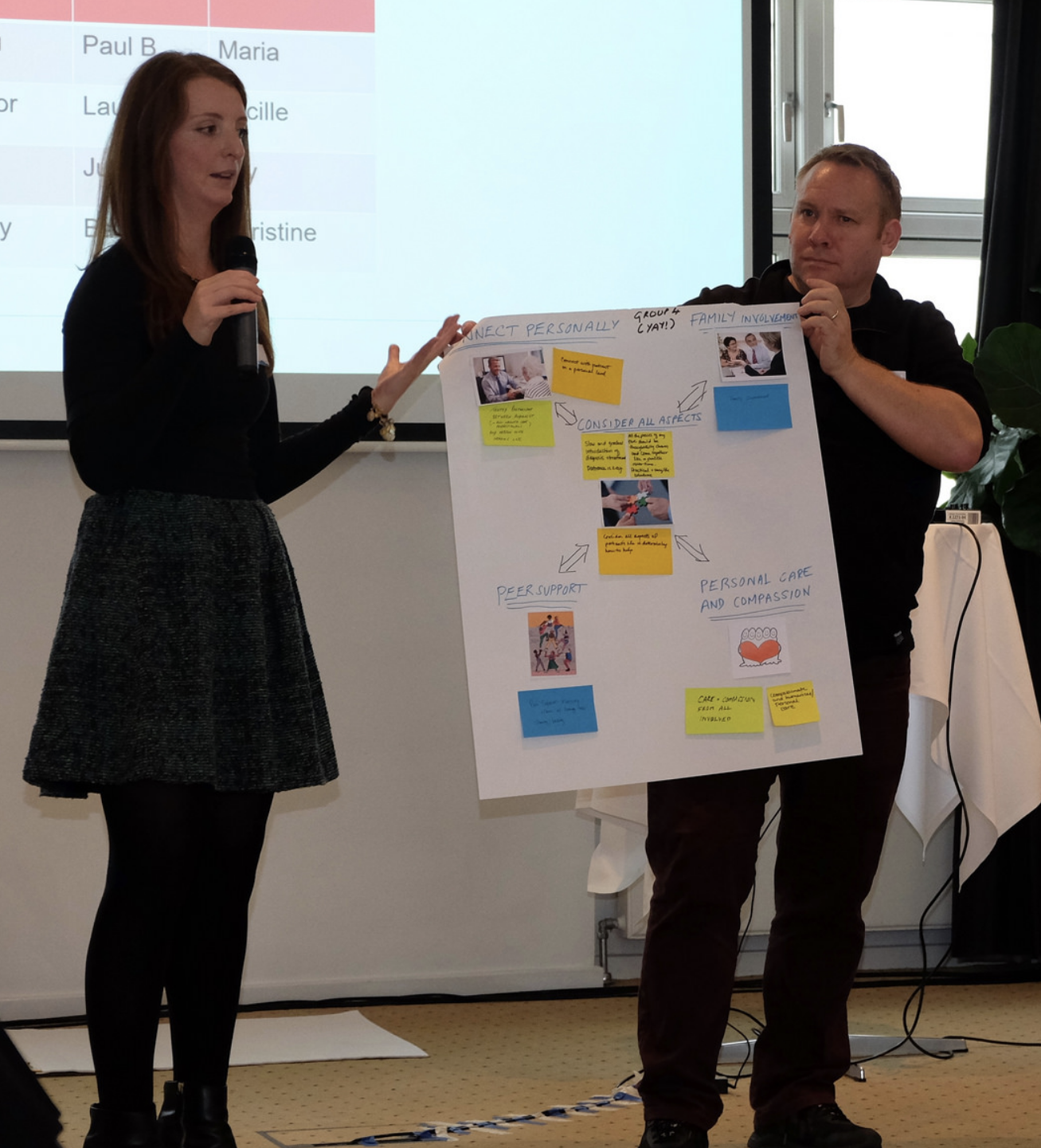By Laura Friedman
Participants used post-it notes to express their desired improvements to the hearing journey. Photo by Darcy Benson.
Recently, in October 2017, I represented Hearing Health Foundation (HHF) at a seminar that took place in Skodsborg, Denmark, where I and 30 other attendees from around the world were tasked with closely exploring and developing tactical strategies to better the patient experience when receiving audiological care.
The seminar conversations focused on person-centered care, a treatment model that focuses on the whole person, rather than just the ailment or condition experienced by the patient. The peer-reviewed Permanente Journal says that person-centered care is “based on accumulated knowledge of people, which provides the basis for better recognition of health problems and needs over time and facilitates appropriate care for these needs in the context of other needs.” Furthering this sentiment, the World Health Organization identifies empowerment, participation, the central role of the family, and an end to discrimination as the core values of person-centered care.
The two-day symposium was titled, “The Hearing Journey: What Matters to You?” The 31 attendees fell into one or more of the following groups: individuals with hearing loss, representatives from prominent consumer-driven associations for people with hearing loss, audiologists, and hearing healthcare thought leaders. The conference was hosted by the Ida Institute, a Denmark-based nonprofit that aims to better understand human dynamics associated with hearing loss.
The symposium participants pose as a group. Photo by Darcy Benson.
One of the most eye-opening takeaways was recognizing that all those who are part of the care-cycle feel shared sentiments of frustration, poor communication, lack of access, and high costs. Addressing each of these hurdles from a variety of vantage points is key to bettering person-centered care and may not be limited to just audiological care, but rather medical care as whole.
Exercises and projects resulted in several meaningful insights related to person-focused hearing healthcare. We spoke openly about stigma, barriers to rehabilitation, and the need for creating a “new narrative” for how we speak about hearing loss. Changing how we talk about hearing loss, such as how our current nomenclature addresses it as a loss or deficit, will hopefully play a role in changing social stigmas and taboos experienced by those who are hard of hearing, like myself.
HHF's Laura Friedman presents to the group with Paul Breckell, Chief Executive of Action on Hearing Loss. Photo by Darcy Benson.
All parties stressed the importance of including caregivers and family members in the rehabilitation process, and the need for a multidimensional model of care to address the psychological and emotional aspects of hearing care. This included developing a “human audiogram” to discuss diagnoses and their subsequent treatment options in more friendly terms that empowers the patient, rather than discouraging them. It was also advised that clinicians should be more cognizant that diagnoses are difficult for the patient to come to terms with and remember that the most successful patients want treatment, but that it may take time for them to feel motivated to take that next step. Follow-up appointments, rather than immediate discussion of treatment options, was a suggestion most agreed would serve the patient and clinician well.
I feel honored to had been afforded the opportunity to represent HHF at this important symposium and to meet and learn from fellow leaders in the hearing healthcare space. I look forward to working with Ida and my fellow attendees to develop and employ tangible tools and solutions to better a patient’s hearing journey both in and out the audiologist's office, as well as provided better resources to health care providers.
Laura Friedman is the Communications and Programs Manager of Hearing Health Foundation. Read her hearing loss story in the Spring 2016 issue of Hearing Health magazine.




